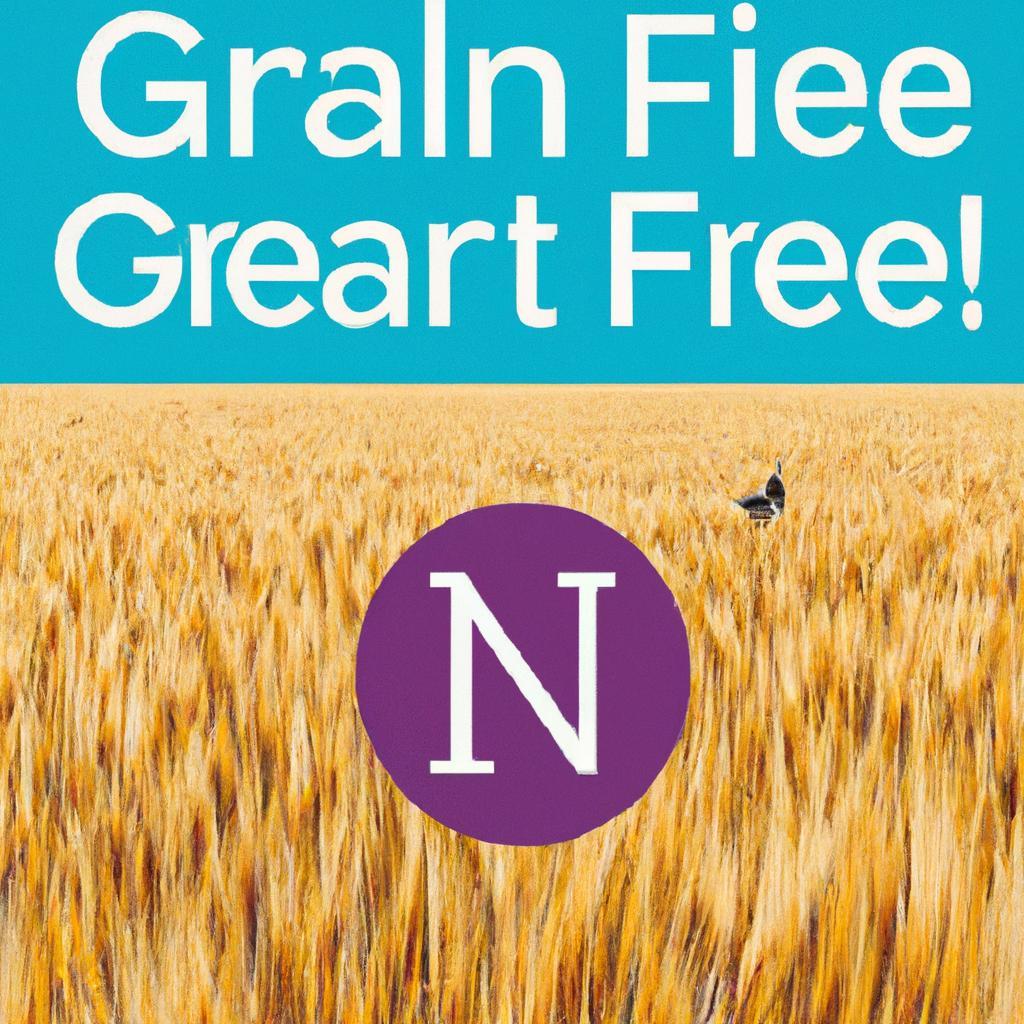In a bustling town, a young athlete named Mia struggled with energy during her training. After switching to a grain-free diet, she felt revitalized, her performance soared, and her recovery improved. Curious, her friends joined her journey, discovering that many felt lighter and more focused without grains. However, they learned that grain-free isn’t for everyone; it requires careful planning to ensure balanced nutrition. The key? Listen to your body and consult a professional. Grain-free can be healthy, but it’s not a one-size-fits-all solution.
Contents
- Understanding the Nutritional Needs of a Grain-Free Diet
- Evaluating the Health Benefits and Risks of Eliminating Grains
- Identifying Suitable Alternatives to Grains for Balanced Nutrition
- Practical Tips for Transitioning to a Grain-Free Lifestyle
- Q&A
Understanding the Nutritional Needs of a Grain-Free Diet
Adopting a grain-free diet can be a transformative choice for many individuals, but understanding its nutritional implications is crucial for ensuring a balanced intake. This dietary approach often emphasizes whole, unprocessed foods, which can lead to a richer nutrient profile. By focusing on alternatives such as fruits, vegetables, nuts, seeds, and high-quality proteins, individuals can enjoy a variety of essential vitamins and minerals that support overall health.
One of the primary considerations in a grain-free diet is the need to replace the nutrients typically obtained from grains. Grains are often a significant source of fiber, B vitamins, and iron. To compensate for this, it’s important to incorporate other fiber-rich foods such as:
- Legumes – Beans and lentils can provide both protein and fiber.
- Vegetables – Leafy greens and cruciferous vegetables are excellent sources of vitamins and minerals.
- Nuts and seeds – These are not only rich in healthy fats but also provide essential nutrients.
Moreover, protein intake becomes even more critical in a grain-free diet. Without grains, individuals may find it necessary to increase their consumption of high-quality protein sources. Options such as:
- Grass-fed meats – These provide essential amino acids and healthy fats.
- Fish – Rich in omega-3 fatty acids, fish supports heart and brain health.
- Eggs – A versatile protein source packed with vitamins and minerals.
Lastly, it’s essential to be mindful of potential nutrient deficiencies that may arise from eliminating grains. Incorporating a variety of foods and considering supplementation can help mitigate these risks. For instance, ensuring adequate intake of calcium and vitamin D is vital for bone health, while magnesium and zinc are important for metabolic functions. By carefully planning meals and focusing on nutrient-dense options, a grain-free diet can be both healthy and satisfying.
Evaluating the Health Benefits and Risks of Eliminating Grains
When considering a grain-free diet, it’s essential to weigh both the potential health benefits and the associated risks. Many proponents of this dietary approach argue that eliminating grains can lead to improved digestion and reduced inflammation. By cutting out gluten-containing grains, individuals with sensitivities may experience relief from symptoms such as bloating, gas, and fatigue. Additionally, a grain-free diet often encourages the consumption of whole, nutrient-dense foods, which can enhance overall health and well-being.
Another significant advantage of a grain-free lifestyle is the potential for weight management. Grains, particularly refined varieties, can contribute to spikes in blood sugar levels, leading to increased hunger and cravings. By focusing on protein, healthy fats, and vegetables, individuals may find it easier to maintain a balanced diet that supports weight loss or maintenance. This shift can also promote better metabolic health, reducing the risk of conditions such as type 2 diabetes and heart disease.
However, it’s crucial to recognize the potential downsides of eliminating grains entirely. Whole grains are a rich source of essential nutrients, including fiber, B vitamins, and minerals like iron and magnesium. A sudden removal of these foods can lead to deficiencies if not carefully managed. Furthermore, the absence of fiber from grains may result in digestive issues for some individuals, including constipation and irregular bowel movements.
Lastly, the psychological aspect of dietary changes should not be overlooked. For many, grains are a staple in their diets and provide comfort and satisfaction. Abruptly cutting them out can lead to feelings of deprivation, which may trigger unhealthy eating behaviors or bingeing on other food groups. It’s essential to approach any dietary change with a balanced mindset, ensuring that the focus remains on overall health rather than strict adherence to a grain-free lifestyle.
Identifying Suitable Alternatives to Grains for Balanced Nutrition
When considering a grain-free lifestyle, it’s essential to explore a variety of alternatives that can provide balanced nutrition without compromising on taste or health benefits. Many individuals are turning to options that are not only nutritious but also versatile in their culinary applications. By incorporating these alternatives, you can enjoy a diverse diet that supports your overall well-being.
One of the most popular substitutes is quinoa, a complete protein that contains all nine essential amino acids. This ancient grain is gluten-free and rich in fiber, making it an excellent choice for those looking to maintain digestive health. Additionally, its nutty flavor and fluffy texture make it a delightful addition to salads, bowls, and side dishes.
Another fantastic option is cauliflower, which has gained immense popularity as a low-carb alternative to grains. When riced or mashed, cauliflower can mimic the texture of traditional grains while providing a wealth of vitamins and minerals. It’s incredibly versatile, allowing for creative dishes such as cauliflower pizza crusts, risottos, and even grain-free tabbouleh.
Don’t overlook the benefits of legumes, such as lentils and chickpeas, which are packed with protein and fiber. These nutrient-dense foods can easily replace grains in various recipes, offering a hearty and satisfying meal. They can be used in soups, stews, and salads, providing a rich source of nutrients while keeping your meals exciting and flavorful.
Practical Tips for Transitioning to a Grain-Free Lifestyle
Transitioning to a grain-free lifestyle can be a rewarding journey, but it requires careful planning and consideration. Start by evaluating your current diet and identifying which grains you consume most frequently. This will help you understand where to make changes. Common grains to eliminate include wheat, rice, corn, and oats. Once you have a clear picture, you can begin to explore alternatives that align with your new dietary goals.
Next, stock your pantry with grain-free staples. Focus on whole foods that are naturally free from grains, such as vegetables, fruits, nuts, seeds, and high-quality proteins. Consider incorporating items like almond flour, coconut flour, and cassava flour, which can be excellent substitutes for traditional grains in baking and cooking. Having these ingredients on hand will make it easier to create delicious meals without feeling deprived.
Meal planning is another essential aspect of making this transition smoother. Create a weekly menu that emphasizes grain-free recipes, ensuring you have a variety of flavors and nutrients. This not only helps you stay on track but also minimizes the temptation to revert to grain-based options. Don’t hesitate to experiment with new recipes and cooking techniques; the culinary world is full of exciting grain-free possibilities!
Lastly, listen to your body as you make this change. Everyone’s experience with a grain-free diet can vary, so pay attention to how you feel physically and mentally. Keep a food journal to track your meals and any changes in your energy levels or digestion. This practice will help you identify what works best for you and allow you to adjust your approach as needed, ensuring a sustainable and enjoyable grain-free lifestyle.
Q&A
-
Is a grain-free diet suitable for everyone?
No, a grain-free diet is not suitable for everyone. While some individuals may benefit from eliminating grains due to allergies, intolerances, or specific health conditions, others may find that whole grains provide essential nutrients and fiber. It’s important to consult a healthcare professional before making significant dietary changes.
-
Can a grain-free diet lead to nutritional deficiencies?
Yes, a grain-free diet can potentially lead to nutritional deficiencies if not properly planned. Whole grains are a source of important vitamins, minerals, and fiber. To maintain a balanced diet, it’s crucial to incorporate alternative sources of these nutrients, such as fruits, vegetables, nuts, and seeds.
-
Does a grain-free diet promote weight loss?
A grain-free diet may promote weight loss for some individuals, particularly if it leads to reduced calorie intake or improved food choices. However, weight loss results can vary based on overall dietary habits and lifestyle factors. It’s essential to focus on a well-rounded diet rather than solely eliminating grains.
-
Are there any health benefits to going grain-free?
Yes, some people may experience health benefits from a grain-free diet, such as improved digestion, reduced inflammation, and better blood sugar control. However, these benefits are highly individual and depend on various factors, including the overall quality of the diet and personal health conditions.
while grain-free diets may offer benefits for some, it’s essential to approach them with caution. Prioritize balanced nutrition and consult a healthcare professional to ensure your dietary choices support your overall health and well-being.

大家好,我是彼得潘,專業的手法身體治療師。我喜歡探索和研究各種主題,並透過與人工智慧的合作分享專業、實用、有趣的文章。我們定期進行人工審核,以確保內容的準確性。如果您發現文章中有任何不準確的地方,請隨時與我們聯繫,我們會及時糾正。您可以透過 [email protected] 與我們聯繫。



